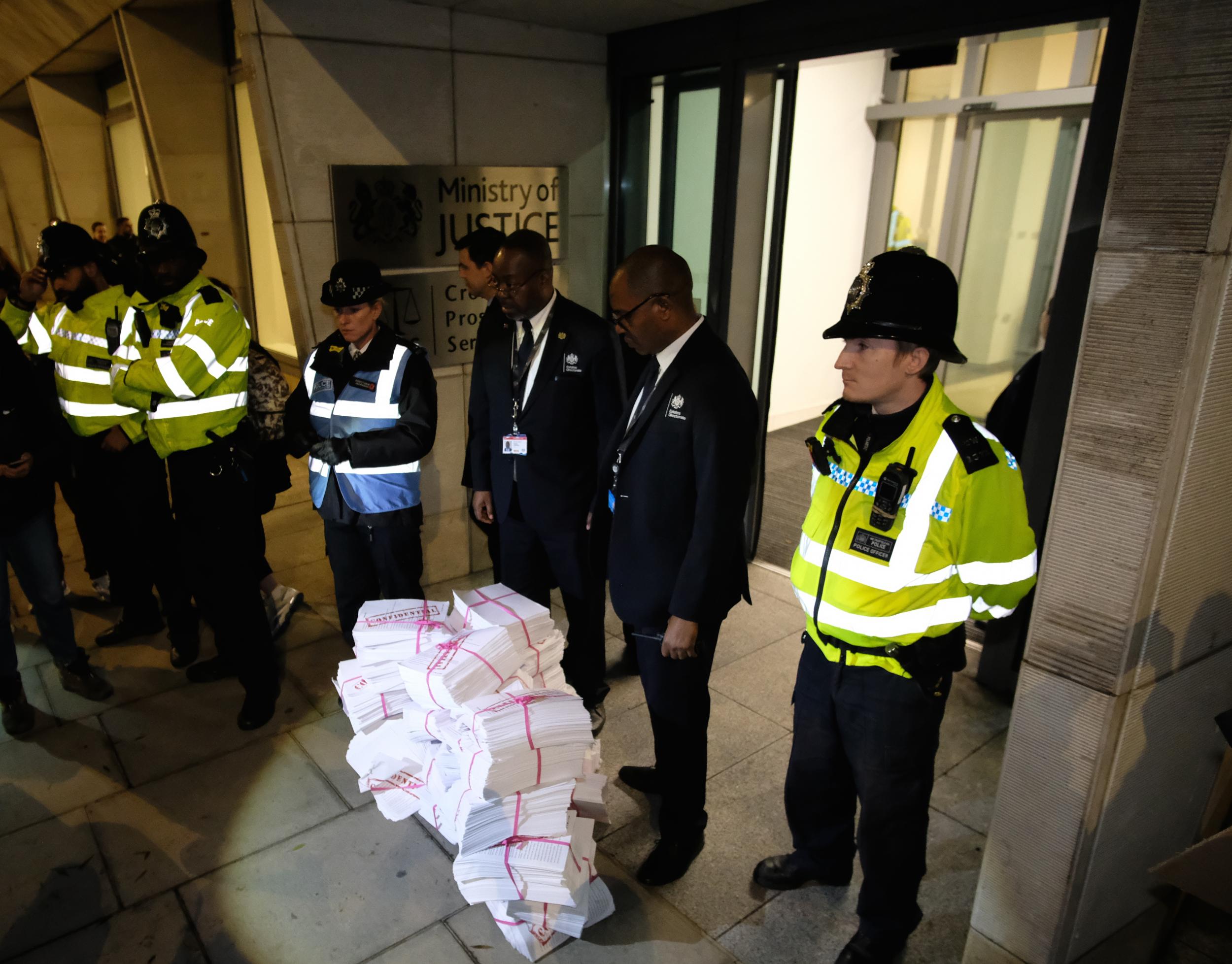Fury at police demand for rape victims to hand over phones prompts belated consultation exercise
Rape victim who dropped case accuses authorities of 'attempting to legitimise horrendous procedures'

Police and prosecutors have written to MPs and campaigners to discuss potential “improvements” to forms demanding victims of rape and other crimes hand over their phones or risk seeing the guilty party go free.
Documents being handed out across England and Wales warn that if a complainant refuses to surrender their digital devices or tries to prevent any personal information being shared, “it may not be possible for the investigation or prosecution to continue”.
News of the scheme provoked a backlash from victims’ groups and politicians, who warned police the “traumatising” intrusion may stop people reporting rape and domestic abuse, after decades of work to boost confidence in the justice system and prosecution rates of less than 2%.
The forms have been in use across all 43 police forces in England and Wales for months, but the National Police Chiefs’ Council (NPCC), Crown Prosecution Service (CPS) and College of Policing have now formally invited submissions from victims' groups.
“Police and prosecutors have a duty to pursue all reasonable lines of enquiry in every investigation, and to disclose any material that undermines the case for the prosecution or assists the case for the accused,” a joint letter said.
“Those reasonable lines of enquiry now frequently extend into the devices of complainants and witnesses, as well as suspects - particularly in cases where suspects and complainants know each other.”
Officials said recipients were being "invited to assist in considering whether further improvements can be made to the form itself or if further guidance could be given to support its implementation".
The letter stressed that suspects’ devices are also examined, but consent is needed for complainants and witnesses.
If they refuse, investigations can still proceed where there are other lines of inquiry but the decision is taken on a “case-by-case basis”.
Police and prosecutors are planning a meeting with victims' advocates, and may meet with MPs following an urgent question on the issue in the House of Commons.
It comes as at least two rape complainants consider a legal challenge over demands for their data, and a separate probe by the Information Commissioner.
Rape victims had already reported police asking to download all information on their phones, including messages, photos, call logs and social media accounts, and police and prosecutors say the new forms will improve consistency and give complainants more information about how the data is used.
Figures released last week show that only 1.7 per cent of reported rapes were prosecuted in 2018, and 40 per cent of cases were closed with the marker “evidential difficulties – victim does not support action”.
Sarah*, a woman from London who dropped her case after the Metropolitan Police demanded her phone last year, told The Independent that the form would not have changed her decision.
The 22-year-old was attacked by a stranger who claimed he would help her get home after she lost her handbag on a night out, had given forensic samples and identified the suspect via his Facebook account.

But she said a police officer told her the case “couldn’t go ahead” unless she handed in her mobile phone.
“The form doesn’t say anything different to what was said to me verbally by the police at the time when I reported my incident,” Sarah said.
“If I didn’t feel able to go ahead with my report at the time, I certainly wouldn’t now. The end result remains the same for me, although there is an added layer of fear and powerlessness with this new form due to the fact that they have now managed to legalise, and attempted to legitimise, these horrendous procedures.”
Depending how data is extracted, phones may be given back within hours or kept until the end of criminal proceedings months or years later.
During court cases, victims’ communications and personal material may be passed to their attacker’s defence team – even if there are protections against it being used in open court.
The letter acknowledged that while the forms can be used for all crimes, rape and sexual offences were more likely because “prior relationships” are often considered a reasonable line of inquiry.
“It will also be used in other cases where digital evidence may be crucial, such as malicious communications, stalking and harassment and violent crime including homicides,” it added.
“It is clearly wrong that victims should ever feel discouraged from reporting offences or seeking access to support services. We fully recognise that some complainants have had very difficult experiences in the criminal justice system, and we are seeking to address that by bringing clarity and consistency across the country.”
The forms are part of a wider strategy to improve the way potential evidence is shared between officers, prosecutors and defence lawyers.
The “national disclosure improvement plan” was sparked in January 2018 by public outrage over a series of rape cases that collapsed over newly-discovered messages and photos.
All CPS prosecutors and more than 93,000 police officers and staff have received updated College of Policing disclosure training, which will also be given to new recruits.
*Name changed to protect anonymity
Bookmark popover
Removed from bookmarks